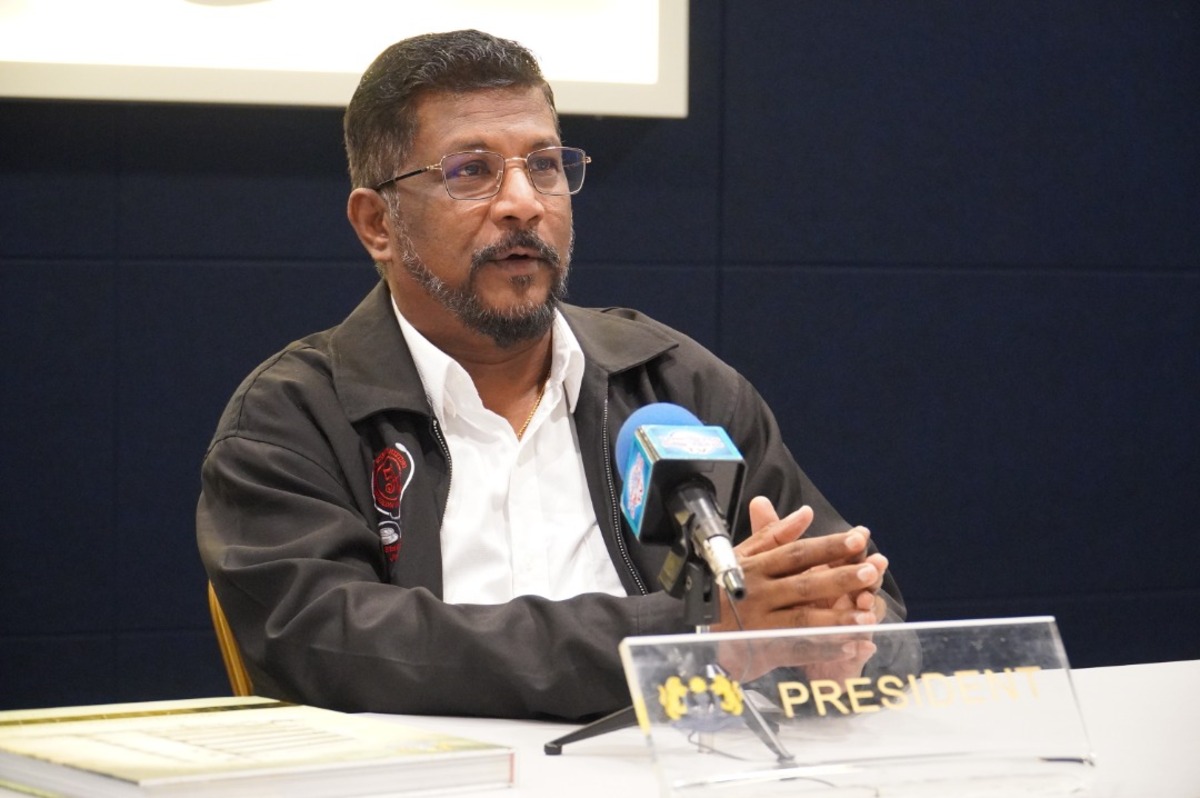KUALA LUMPUR, March 27 – The Malaysian Medical Association (MMA) has demanded an explanation from the Public Service Department (JPA) for its decision to stop sponsoring studies in medicine this year.
The Star reported last Saturday JPA as saying in a statement that it would not be offering scholarships for medicine, dentistry, and pharmacy, as well as nursing and para-medical programmes.
JPA sponsorships for 2023 instead would only cover first degree studies in public universities, premier polytechnics, and government-linked universities that have been selected by JPA for convertible loans.
“Will this move affect the expertise that will be needed in the public health care sector in the near future and long term?” said MMA president Dr Muruga Raj Rajathurai in a statement yesterday.
“What is the government’s policy on human resources planning for the public health care sector? We hope JPA will be able to share its projection of medical officers, specialists, allied health care personnel, and other health care staff that will be needed for the next five and 10 years.”
MMA pointed out that Malaysia still has not met the recommended 1:400 doctor to patient ratio in public health care facilities.
In some hospitals, the doctors’ group noted that the ratio could go up to as high as one doctor per 1,000 patients, besides shortages of specialists in the public sector.
“There needs to be sufficient planning of health care human resources taking into consideration the needs and population growth. Sufficient time is also needed to train health care workers.
“Our worry is there might not be enough specialists in the future as the demand for specialist services are increasing and is expected to further increase due to an ageing population,” Dr Muruga said.
JPA’s move to drop scholarships for medical school is among the more drastic measures taken by the government in the health sector, ever since the contract system was introduced for doctors and other health care professionals in 2016.
The contract system for doctors was introduced – initially as a temporary measure – to reduce the glut of medical graduates waiting for housemanship from over 30 medical schools nationwide.
Seven years later, however, Ministry of Health (MOH) data shows that only 62 per cent of housemen positions have been filled, according to a written Dewan Rakyat reply by Health Minister Dr Zaliha Mustafa last month.
A contract medical officer told CodeBlue last month that nowadays, housemen positions can remain vacant three days after the job is posted, noting that many local medical graduates who graduated from public universities like Universiti Malaya and Universiti Kebangsaan Malaysia left for other countries like Singapore after the contract system came into place.
Besides eliminating scholarships for medical school this year, JPA is also currently conducting a “comprehensive review” on the implementation of the provision of the Critical Service Incentive Payment (BIPK) for eligible service schemes under a Public Service Allowance Rationalisation Study, according to Dr Zaliha’s March 8 written parliamentary reply to Parit MP Muhammad Ismi Mat Talib.
Reportedly, 90 per cent of BIPK recipients – including doctors, dentists, pharmacists, nurses, and medical assistants – are from the health service.
Dr Zaliha’s reply to Muhammad Ismi in the Dewan Rakyat was similar to a March 21 written Dewan Negara reply to Senator Husain Awang on the critical service allowance, except that she specified JPA as conducting the BIPK review in the former, whereas she simply mentioned “Central Agency” (Agensi Pusat) in her latter reply in the Senate.
JPA’s “Kajian Rasionalisasi Elaun Perkhidmatan Awam” is the first time that such a rationalisation study was mentioned publicly.
JPA’s circular dated December 20, 2019 – which abolished BIPK for new officers joining the service from January 1, 2020, besides eight other allowances in the public sector – was titled “Pengukuhan Pelaksanaan Pemberian Elaun Dalam Perkhidmatan Awam” (Strengthening of the Implementation of the Provision of Allowances in the Public Service).
The Pakatan Harapan (PH) government, in January 2020, suspended the abolition of the critical allowance after massive uproar from the medical fraternity, following CodeBlue’s report on the 2019 JPA circular.
Bandar Kuching MP Dr Kelvin Yii, who is advisor to Dr Zaliha, tweeted last Friday, in response to the current BIPK review, that it “has never been the stand” of the health minister and MOH and that they would “object again if it is being pushed again”.
Dr Zaliha herself has not issued a statement to clarify whether the critical allowance will be increased or expanded to other service schemes, or whether the BIPK will be reduced or abolished entirely. Both her written replies in the Lower and Upper House of Parliament did not provide details of the BIPK review.
JPA said back in December 2019 that a 2019 review found that all 33 service schemes allocated with the BIPK no longer fulfilled the original criteria for giving the critical allowance, due to an excess of applications by doctors, pharmacists, nurses, dentists, and medical assistants for available vacancies in the public service. JPA also said BIPK was estimated to cost the government RM1.05 billion in 2020, rising to RM1.24 billion in 2022.








